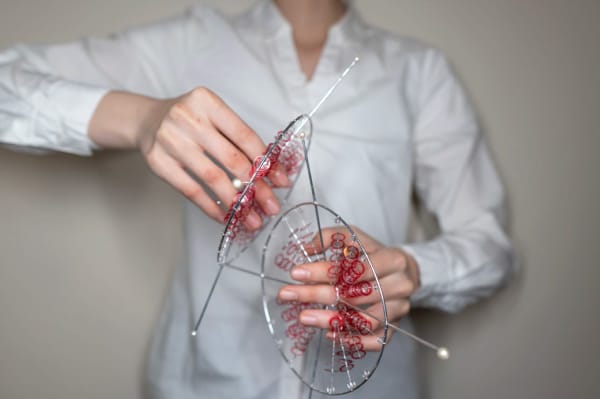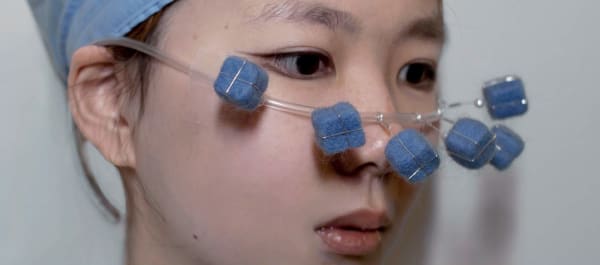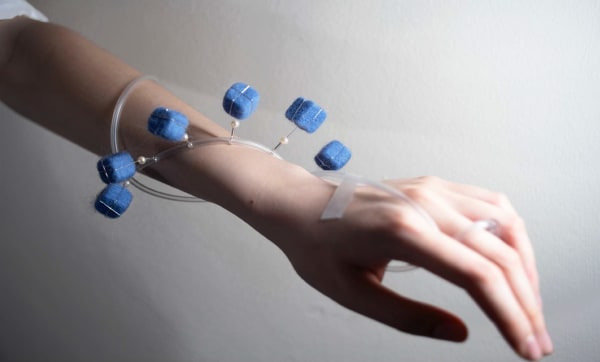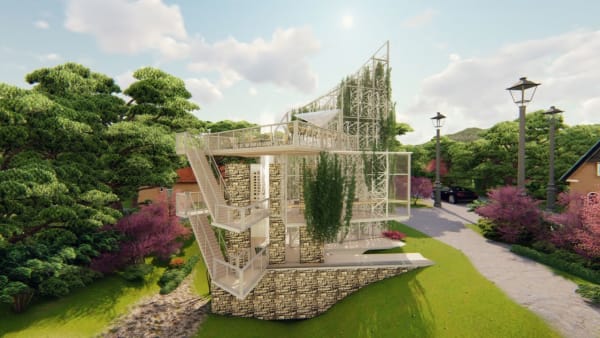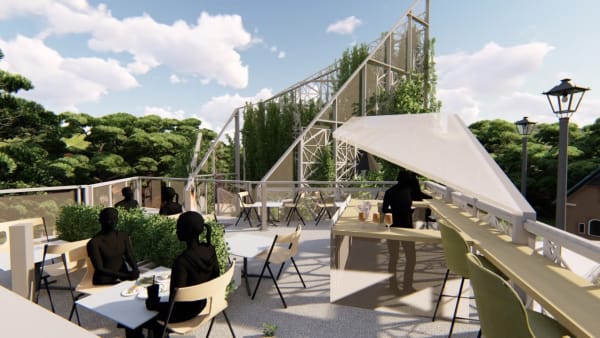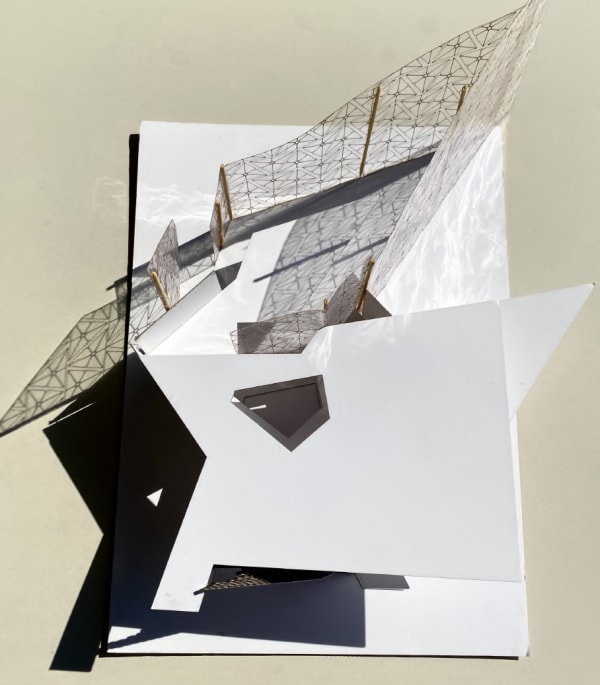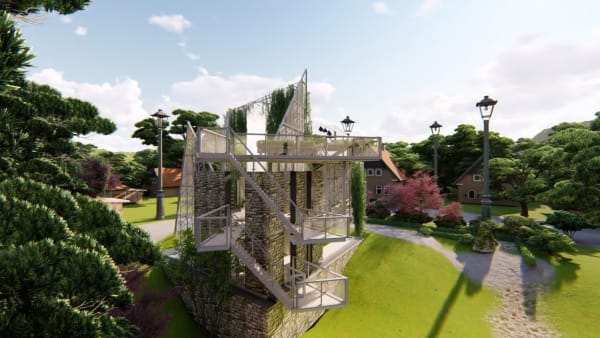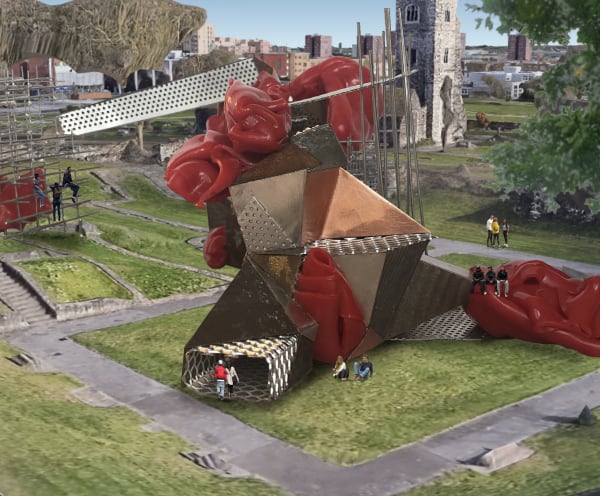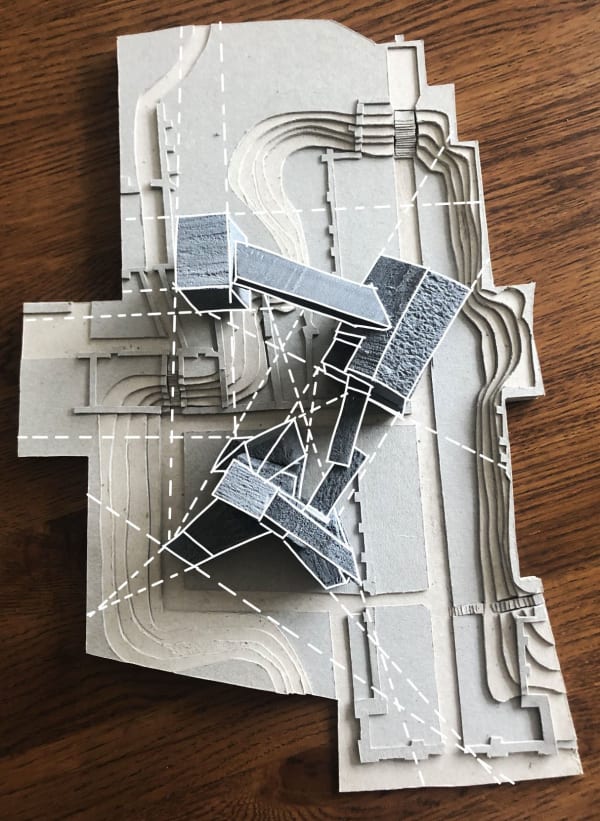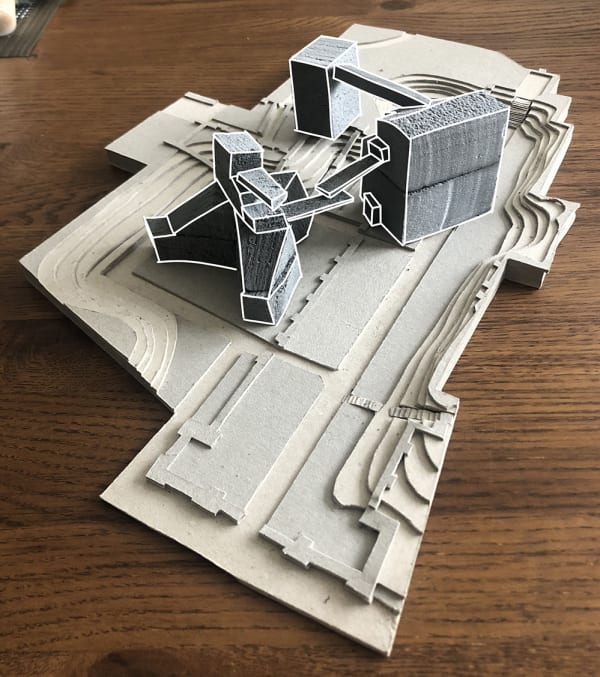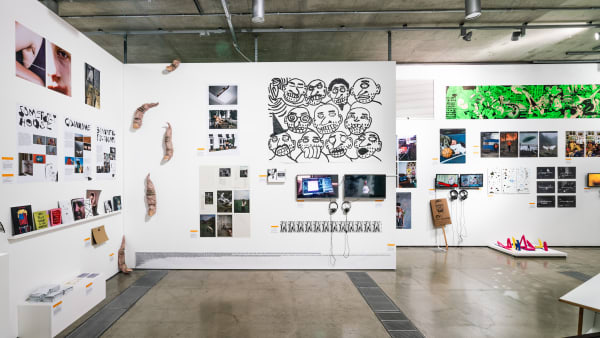As our Foundation students move to the next stage in their creative education, we catch up with them to hear about their final projects and look back over a year unlike any other.
Jiayang He, Surgery
"I explored the paradoxical feeling from my childhood memory – the fear of, and obsession towards, medical instruments. I found a certain similarity between a priest and a surgeon. The procedure of surgery in my eyes is like a solemn performance under the spotlight, a quiet ritual balance between life and death. The movement of the hands and the divine intention behind attracts me. It's the feeling and the experience that I want to deliver through my design work, the admiration and curiosity for the medical world accompanied with the intuitive reverence for life."
Following your year in Foundation, and also working through various degrees of pandemic lockdown, what matters to you now?
"I think what matters to me is the ability to work independently with concentration, which is something I have developed through the lockdown experience. I was in London when the lockdown level was Tier 5. That was a difficult winter because I was totally alone in a foreign country and in a small room, in which I went through the most important time of my foundation year. I learned to devote all my time to my projects and be resourceful. It was a precious experience."
Jiayang He is going on to study BA Jewellery Design.
Jiayang He, Surgery
Pia Tedy, A Lebanese Sustainable Model
“My project celebrates the beauty of Lebanese culture by renovating the traditional Lebanese house to create a more sustainable model. The design brings nature into the heart of the house and integrates an environmentally friendly approach. The house is transformed into a centre for the public, which includes a public library, a restaurant and spaces to study and relax in connection with the nature that surrounds it. The use of solar and copper cladding panels, as well as the rain-water harvesting system, reduces energy consumption and makes the house not only aesthetic but also functional.”
Following your year in Foundation, and also working through various degrees of pandemic lockdown, what matters to you now?
"The Covid-19 pandemic reshaped the world and affected us all. Students around the world faced many challenges, like the shift to online learning and not being able to go on campus, meet with friends, use the studios or even go out for a leisurely walk. The world shrank to the boundaries of our dorm rooms. This pandemic forced us to witness life in a very unusual way.
On top of that, my home country, Lebanon is facing the worst economic crisis in its history and is trying at the same time to survive the third biggest explosion in the world that occurred in the Beirut port in August 2020. Seeing my family and friends lose their loved ones, homes and jobs, due to the crisis and the pandemic made me realise that I have the power to make a difference, to contribute to society and to responsibly develop my country.
My education is what matters to me the most now. My Foundation year allowed me to understand what kind of designer I want to be and it gave me the motivation to pursue my passion for architecture. I will learn to design buildings that will do more than take up space in the crowded streets of Beirut; I will build sustainability so that, one day, I will come back to my home country and make a real difference."
Pia Tedy is going on to study at the Architectural Association School of Architecture.
Ifsah Chowdhery, Pandemonium of Renaissance
"Pandemonium of Renaissance investigates the chaotic nature in which rebirth occurs in a space. Many places in London have formed into dead space, with limited/no evidence of human life or movement present. Neglect of Outer London is prominent. These redundant spaces in our urban environments are vital sites that once possessed the charm and liveliness that attracted populations to the area. With the lack of new space, these areas are valuable in urban settings, so why look past them? People are always seeking new space and seeking to organise the chaos that is a city. Through my project a space will be resurrected. Born again. Bringing new life, growth and activity to it. The process of birth is extremely chaotic and I plan to use this as a tool to create re-living spaces. I want to revitalise these spaces with a chaotic energy creating intrigue and shocking users.
Users are intrigued at an unfamiliar yet familiar space, as they try to navigate with no sense of order and direction. They experience the space rather than look past the familiar pattern. This brings a comfortable chaos and adventure into their lives. Through the renaissance of these dead neglected spaces, I will use architecture to create a public structure that is wild, noisy, and full of confusion. These spaces create a constant pandemonium, bringing local communities together in curiosity and engagement in neglected areas."
Following your year in Foundation, and also working through various degrees of pandemic lockdown, what matters to you now?
"Before the pandemic and lockdowns, I was solely focused on achieving the A-Levels I needed for university and worked very independently. But doing this foundation year, I have learnt to appreciate something as simple as human interaction and how important that is in a design course, let alone in general.
This whole year has shifted all our realities into uncomfortable environments, isolating all of us. I really disliked working from home and continuously looked forward to the studio days, going into uni and interacting with my peers. From this I have learnt what matters most, to me, is collaborating and interacting with others to stimulate and challenge me into exploring new possibilities, leading to successful designing. Moving forward into Architecture, I will learn how to create comfortable engaging spaces and navigate the new way of living that we all must adapt to. I feel I have a real chance to contribute to designing for the future."
Ifsah Chowdhery is going on to study a BSc Architecture at UCL.


